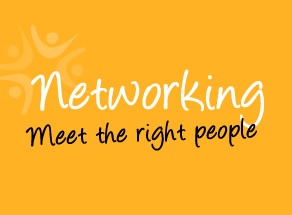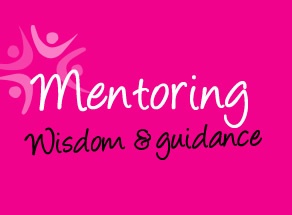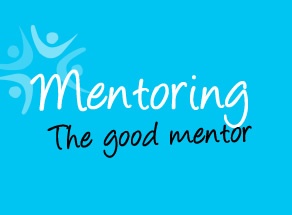Latina Empowerment: My Journey to Help Others Through a Career in Healthcare
Fuerza latina: Mi jornada para ayudar a otros a través del cuidado de salud
08/29/2013 07:10AM | 25710 views
I recently marked two years at City of Hope, and as I noted this personal milestone I began to reflect back on the journey that got me here. As a Latina, as a woman, and as a daughter of immigrants from humble beginnings, it was not exactly preordained that I would be working in strategy and planning at City of Hope one day.
Or maybe it was…
When I look back, it occurs to me that the seed was planted at a very young age by my parents – who probably had no idea at the time the impression they were making on me or the impact their actions would have.
Originally from small towns nestled in Durango, Mexico, my parents came to the United States in 1989. Though they assimilated to life here like many of their generation, they never quite overcame their skepticism about the medical profession in the U.S.
In Mexico, becoming a doctor is considered a noble profession; one where helping other people, especially within the local community, is the primary objective. Though the same may be said for those pursuing a medical career in the U.S., that may not always be apparent. Skyrocketing medical bills and insurance premiums paint a different picture, and unfortunately doctors are painted with the same broad brush.
For my parents, that meant a basic mistrust of doctors here and a belief that caring for patients came a distant second to making money. Doctors here, they thought, were in the business of selling healthcare, pushing unnecessary treatments and overprescribing medications. On top of that, a language barrier meant potential miscommunication and a fear of misdiagnosis.
And so, even though we had healthcare coverage, my parents were adamant about taking my siblings—an older sister, twin sister, and younger brother—and me back to their roots in Mexico for routine checkups and minor ailments. This is where they felt most comfortable, with doctors who had earned their trust and with whom they could communicate clearly because they spoke the same language.
On these trips, we saw how much more open our parents were with the Mexican doctors, not afraid to speak up and ask questions where their children’s health was concerned. We also saw how proud our parents were of these doctors—in this noble profession of helping others—and for us they became early role models.
At the same time, it awakened in us an understanding that there was a great need for Latino doctors back in the United States – people who looked like us, knew our issues and spoke our language.
My older sister was the first in our family to answer this call. She always wanted to be a physician, and I’m sure our early experience with healthcare and our parents’ attitude had much to do with this. In 2000, she had the opportunity to attend the annual National Hispanic Youth Initiate (NHYI) in Washington D.C. Funded by the National Institutes of Health (NIH), this program is available to Hispanic youth interested in a career in healthcare, and it exposes them to everything from health sciences and biomedical research to policy development and administration.
It was an eye-opening experience for my sister, not just learning about all the possibilities the health field had to offer – but also finding herself for the first time surrounded by other Latinos who shared her passion for healthcare and helping others. From that moment on, her path was set, and she eventually ventured on to Harvard Medical School. Today she is a successful doctor practicing in the department of Family and Community Medicine at San Francisco’s General Hospital.
My twin sister and I soon followed in our older sister’s footsteps – literally – when we too attended the NHYI. It was the first time I heard about such topics as public health, health administration and policy development as career options in the healthcare industry. Up until then, I thought there were two basic options: doctor or dentist (and I planned to be the latter). Now I saw that there were many other opportunities to make a difference in my chosen field, and I returned from the event more motivated than ever.
After high school, my twin sister went off to Harvard to pursue a bachelor’s degree in the History of Science and eventually a Masters in Public Policy at the Harvard Kennedy School of Government with an emphasis on health policy. I began my journey at Stanford and, as a new student, I made a strong effort to seek out mentors. I had the good fortune to find someone I had met at the program I attended in Washington, D.C. At the time, he was a Stanford Medical School student, and he encouraged me to follow my passion and pursue a career in healthcare.
I sought mentors throughout my educational journey, eventually crossing paths with a professor and researcher at the Stanford School of Medicine. She was instrumental in my decision to pursue a master’s degree in public health at Berkeley, a school I had never considered before. Overall, my mentors’ belief in me and unconditional support emboldened me to face my fears and overcome any lingering doubts I might have. This is why it’s so important to find mentors, and why I try to be a good mentor myself. Telling others about my journey and how I discovered public health as a career is one way to give back to the community that supported me along the way and extend a hand to those coming after me.
It’s important to promote healthcare as a viable career choice for Hispanics because there’s such a need for them in the industry. We can bring a unique perspective that reflects the growth of the Hispanic population and understands the community we are serving; we can be a voice for Hispanic patients and serve as their advocates; and we can be role models and mentors for future generations in all areas of healthcare.
Not only does the industry offer numerous opportunities to help others, it provides a certain level of job security and economic stability not found in most fields – because there will always be a need for healthcare and that need affects everyone. For Latinos wanting to change the conversation and lead the direction of the industry, there will be unprecedented opportunities to advance into senior roles. I’ve seen it happening already, even in my short time in the industry since graduation; for Hispanics, the pipeline is working and the pipeline is growing.
As I look back, I realize my parents had an influence on me that goes much deeper than my career choice. Their support and sacrifices motivated me to pursue higher education and enabled me to persevere through the long nights of study. They never gave up, and neither would I.
Today, in my role as strategist at City of Hope, their influence inspires me to motivate others in the same way, and reminds me not to become too far removed from the community and the issues I want to help with, including matters of health disparities in minority groups.
For their part, time and experience have made my parents a little less skeptical, though they still seek out doctors who speak their language and share their cultural values. Earning trust and loyalty from those in the community like my parents will require not just more Latino doctors, but doctors across the board who are educated about issues affecting the community and understand how culture, customs and upbringing influence the ways people deal with illness.
For those just starting out on this journey, here are a few parting words of advice:
• You can never start learning about career options and networking too early. My sisters and I made contacts at the National Hispanic Youth Initiative who inspired us throughout our academic careers and continue to inspire us today as we work in our chosen professions.
• Find mentors you identify with and feel comfortable opening up to, even if they’re only two or three years ahead of you. They are where you want to be in a few years and can help you get there with a little less trepidation.
• Remember the value of delayed gratification. Though you might want to start working as soon as possible, especially to help support family and community, the longer you stay in school and the higher you are able to climb, the more you will be able to give back and the bigger the harvest you will have to share.
Recientemente
cumplí dos años en City of Hope, y al notar este suceso personal empecé a
reflexionar en la jornada que me trajo aquí. Como latina, como mujer, y como la
hija de inmigrantes de origen humilde, no estaba planeado exactamente que un
día estuviera trabajando en estrategia y planeación en City of Hope.
O tal vez
si estaba…
Cuando miro
al pasado, se me ocurre que la semilla fue plantada a temprana edad por mis
padres – quienes probablemente no tenían idea en ese momento de la impresión
que estaban haciendo o el impacto que sus acciones tendrían en mí.
Siendo
originarios de pequeños pueblos en Durango, México, mis padres vinieron a los
Estados Unidos en 1989. A pesar de que se asimilaron a la vida aquí como muchas
otras personas de su generación, nunca vencieron por completo su escepticismo
acerca de la profesión médica en los Estados Unidos.
En México, ser doctor se considera una profesión
noble; una en donde ayudar a otras personas, especialmente dentro de la
comunidad local, es el principal objetivo. Aun cuando lo mismo se puede decir
de los que siguen una carrera en medicina en los Estados Unidos, no siempre es
evidente. Las cuentas médicas altísimas y las primas de seguro médico muestran
una imagen diferente, y desafortunadamente los doctores están pintados con la
misma brocha.
Para mis
padres, eso significó una desconfianza básica de los doctores aquí y la
creencia de que cuidar a los pacientes se encuentra en segundo plano después de
ganar dinero. Los doctores aquí, ellos pensaban, estaban en el negocio de
vender cuidado de salud, presionando para tratamientos innecesarios o
prescribiendo medicamentos de más. Encima de eso, la barrera del lenguaje
significaba una posible mala comunicación y el miedo a un diagnóstico erróneo.
Y así, aun
cuando teníamos cobertura de salud, mis padres fueron firmes en llevar a mis
hermanos (una hermana mayor, mi hermana gemela y mi hermano menor) y a mí de
vuelta a donde estaban sus raíces en México para los chequeos de rutina y
pequeñas curaciones. Allí es en donde se sentían más cómodos, con doctores que
habían ganado su confianza y con quienes podían comunicarse claramente porque
hablaban el mismo idioma.
En estos
viajes, vimos como nuestros padres eran más sinceros y abiertos con los
doctores mexicanos, sin temor de hablar y hacer preguntas cuando se trataba de
la salud de sus hijos. También vimos que tan orgullosos estaban nuestros padres
de esos doctores – en la noble profesión de ayudar a otros – y para nosotros se
convirtieron en uno de nuestros primeros modelos a seguir.
Al mismo
tiempo, despertó en nosotros el entendimiento de que había una gran necesidad
de doctores latinos en los Estados Unidos, que se parecieran a nosotros,
conocieran nuestros problemas y hablaran nuestro idioma.
Mi Hermana
mayor fue la primera en contestar esta llamada. Ella siempre quiso ser doctora
y estoy segura de que nuestra temprana experiencia en el cuidado de salud y la
actitud de nuestros padres tuvo mucho que ver con esto. En el 2000, tuvo la
oportunidad de atender la National Hispanic Youth Initiative (NHYI) en
Washington, D.C. Fundada por el National Institute of Health (NHI), este
programa anual está disponible para los jóvenes hispanos interesados en una
carrera en el área de salud, y están expuestos a todo desde las ciencias de la
salud y la investigación biomédica hasta el desarrollo de políticas y
administración.
Fue una
experiencia que abrió nuevos campos para mi hermana, no solamente al aprender
acerca de todas las posibilidades que ofrece el campo médico, sino también al encontrarse
por primera vez rodeada de otros latinos que compartían su pasión por el
cuidado de salud y por ayudar a otros. Desde ese momento, su camino estaba
trazado, y eventualmente emprendió hacia Harvard Medical School. Hoy es una
doctora exitosa que practica en el departamento de Medicina de Comunidad y
Familia en el San Francisco General Hospital.
Mi Hermana gemela y yo
seguimos pronto los pasos de nuestra hermana mayor (literalmente) cuando
también atendimos la NHYI. Era la primera vez que oía esos temas como salud
pública, administración de salud y desarrollo de política como opciones de
carrera en la industria de la salud. Hasta entonces, pensé que había dos
opciones básicas: doctor o dentista (y yo planeaba ser lo segundo). Ahora vi
que había muchas otras oportunidades de hacer una diferencia en el campo
elegido, y regresé de este evento más motivada que nunca.
Después de
la preparatoria, mi hermana gemela fue a Harvard para hacer una carrera en
Historia de la Ciencia y eventualmente una maestría en Política Pública en el Harvard
Kennedy School of Government con énfasis en políticas de salud. Yo empecé mi
jornada en Stanford y, como estudiante nuevo, hice un gran esfuerzo en buscar
mentores. Tuve la buena fortuna de encontrar a alguien que había conocido en el
programa al que asistí en Washington, D.C. En ese tiempo, él era un estudiante
en el Stanford Medical School, y me animó a seguir mi pasión y hacer una
carrera en el campo de la salud.
Busqué
mentores a través de mi jornada educativa, y eventualmente mi camino se cruzó
con el de una profesora e investigadora en la Stanford School of Medicine. Ella
fue instrumental en mi decisión de seguir una maestría en salud pública en
Berkeley, una escuela que no había considerado antes. En general, la confianza
de mis mentores hacia mí y su apoyo incondicional me alentaron a enfrentar mis
temores y vencer las dudas que pudiera tener. Es por eso que es tan importante
encontrar mentores, y porque yo misma trato de ser una buena mentora. Decirles
a otros acerca de mi jornada y de cómo descubrí la salud pública como carrera
es una manera de devolverle algo a la comunidad que me apoyó durante el camino
y de extender una mano a los que vienen detrás de mí.
Es
importante promover el cuidado de salud como una elección viable como carrera
para los hispanos porque hay tanta necesidad de ellos en la industria. Podemos
traer con nosotros una perspectiva única que refleja el crecimiento de la
población hispana y entiende a la comunidad que estamos sirviendo; podemos ser
una voz para los pacientes hispanos y abogar por ellos; y podemos ser modelos y
mentores para las futuras generaciones en todas las áreas de salud.
No
solamente esta industria ofrece numerosas oportunidades de ayudar a otros, también
proporciona un cierto nivel de seguridad en el trabajo y la estabilidad económica
que no se encuentra en la mayoría de los campos, porque siempre habrá necesidad
de cuidado de salud y esta necesidad afecta a todos. Para los latinos que quieren
cambiar la conversación y encabezar la dirección de la industria, habrá
oportunidades sin precedentes para avanzar a puestos de alto rango. He visto
que está sucediendo ya, aun en mi corto tiempo en la industria desde mi
graduación; para los hispanos este cauce está funcionando y este cauce está
creciendo.
Cuando veo
al pasado, me doy cuenta de que mis padres ejercieron una influencia en mí que
es más profunda que mi elección de carrera. Su apoyo y sacrificio me motivaron
a seguir una educación superior y me dieron las herramientas para perseverar a
través de las largas noches de estudio. Nunca se dieron por vencidos, y tampoco
yo lo haré.
Hoy, en mi
papel como estratega en City of Hope, su influencia me inspira a motivar a
otros de la misma manera, y me recuerda no alejarme de la comunidad y de los
problemas con los cuales quiero ayudar, incluyendo el tema de disparidad en la
salud en los grupos minoritarios.
Por su
parte, el tiempo y la experiencia han hecho que mis padres sean un poco menos
escépticos, aun cuando todavía buscan doctores que hablen su idioma y compartan
sus valores culturales. Ganando la confianza y la lealtad de las personas que
como mis padres requerirán no solo de más doctores latinos, sino de doctores en
todas las ramas que estén educados acerca de los problemas que afectan a la
comunidad y entiendan como la cultura, costumbres y educación tienen influencia
en la manera en que las personas lidian con las enfermedades.
Para los
que están empezando en esta jornada, estos son algunos consejos finales:
- Nunca es demasiado pronto para empezar
a informarse acerca de las opciones para su carrera así como para hacer
relaciones. Mis hermanas y yo hicimos contactos en la National Hispanic Youth Initiative
que nos inspiraron a través de nuestras carreras académicas y continúan
inspirándonos hoy cuando estamos trabajando en las profesiones que elegimos.
- Encuentre mentores con los cual se
identifique y se sienta cómodo siendo sincero con ellos, aún si solamente están
dos o tres años delante de usted. Ellos son lo que usted querrá ser en algunos
años y pueden ayudarle a llegar allí con un poco menos de ansiedad.
- Recuerde el valor de la
gratificación diferida. A pesar de que tal vez quiera empezar a trabajar tan
pronto como sea posible, especialmente para ayudar a apoyar a la familia y a la
comunidad, recuerde que mientras más permanezca en la escuela, más arriba podrá
llegar, más podrá darle a la comunidad y mayor será la cosecha que podrá
compartir.






Post your Comment
Please login or sign up to comment
Comments